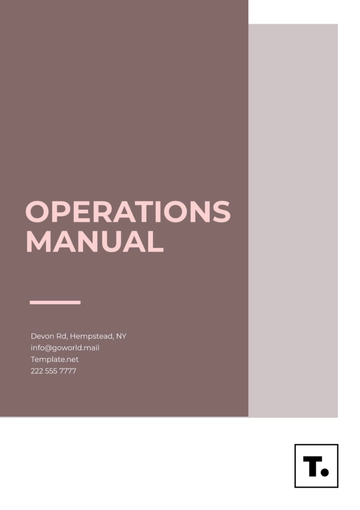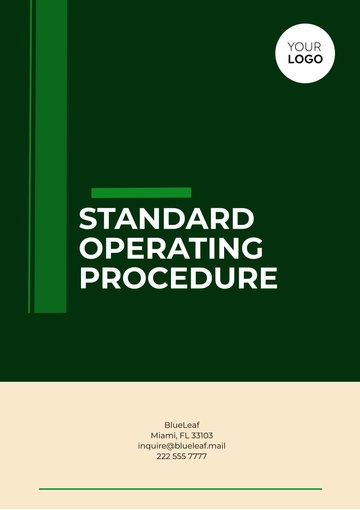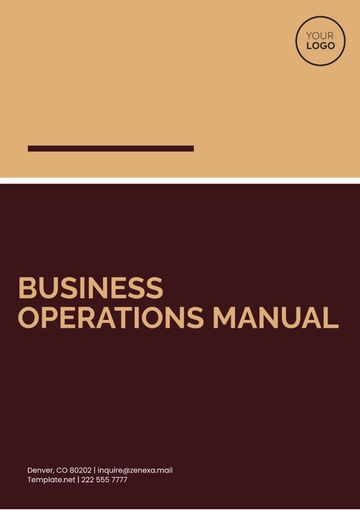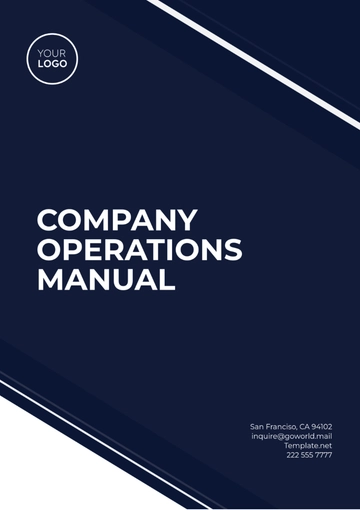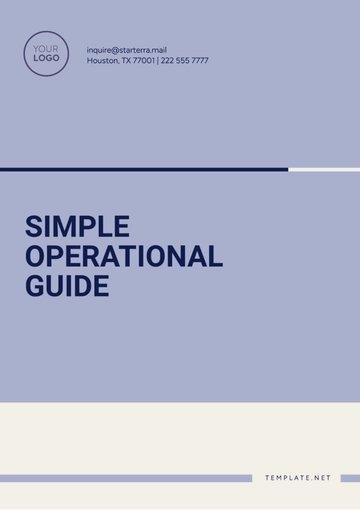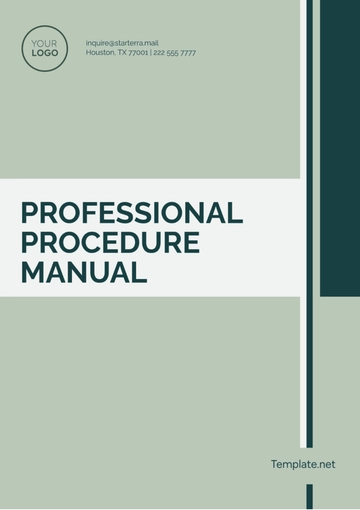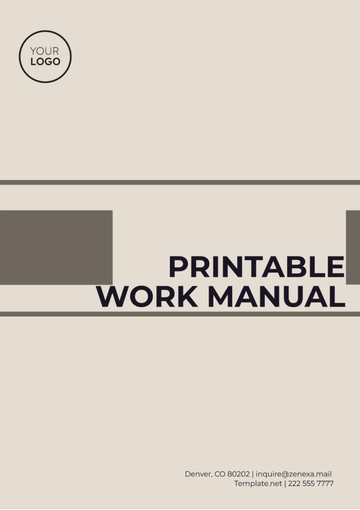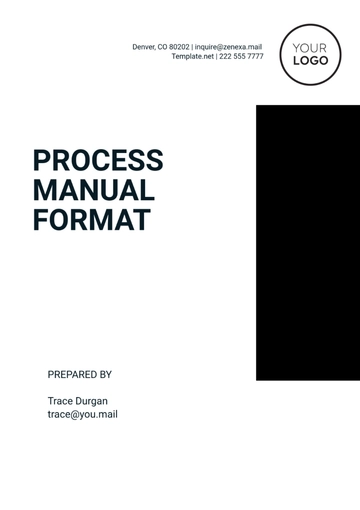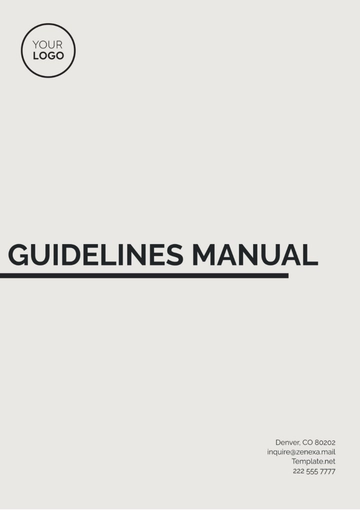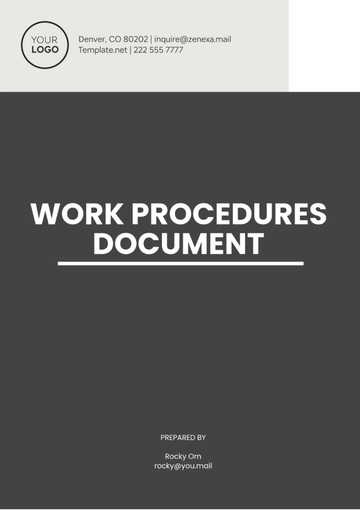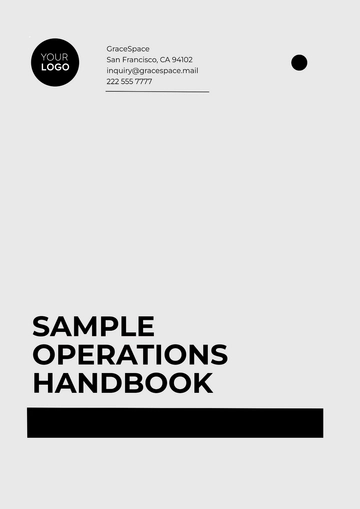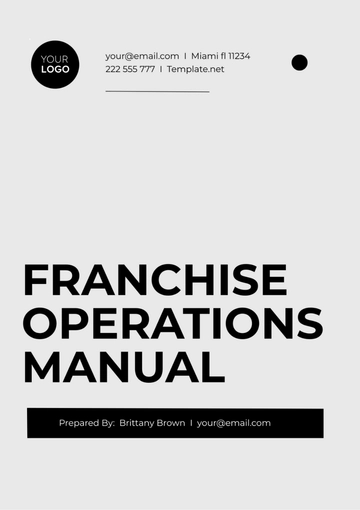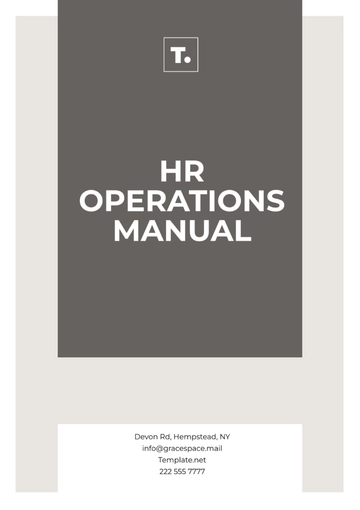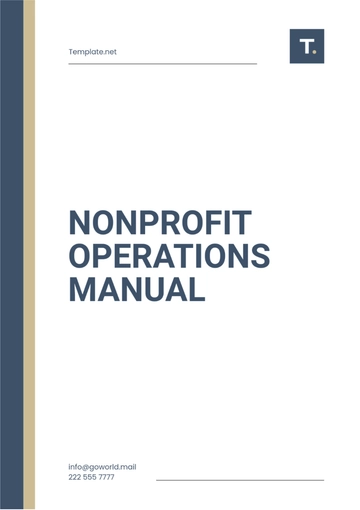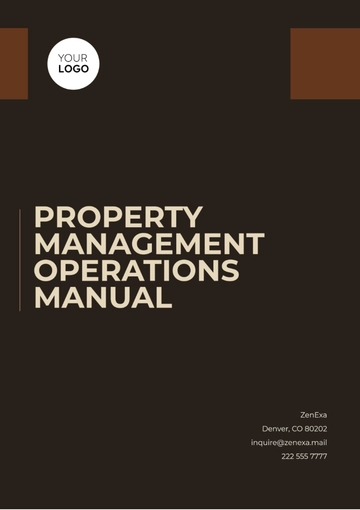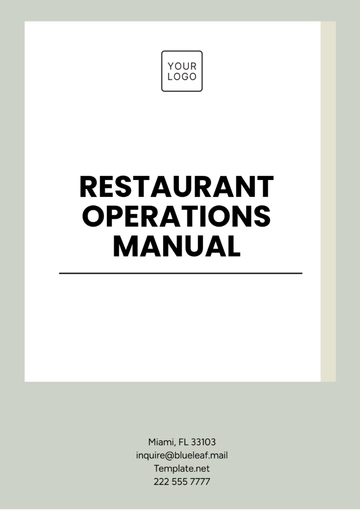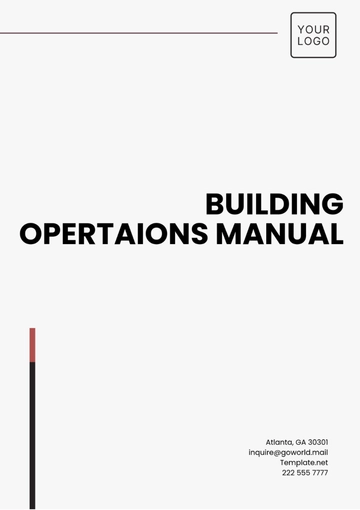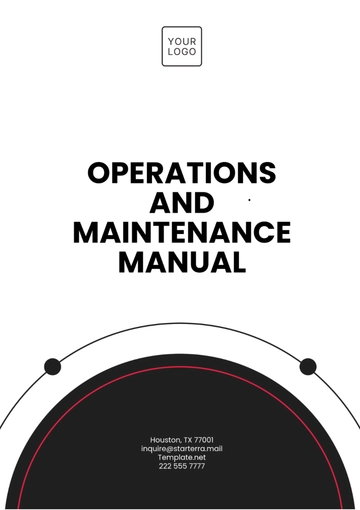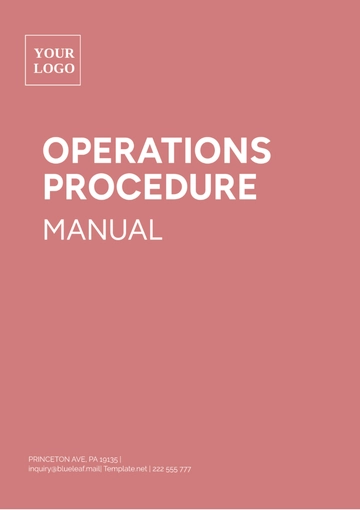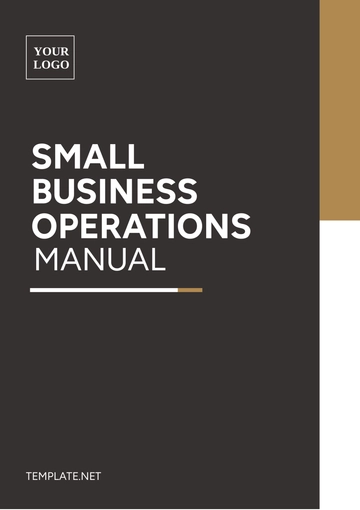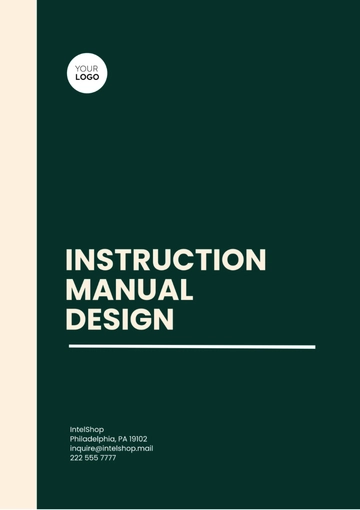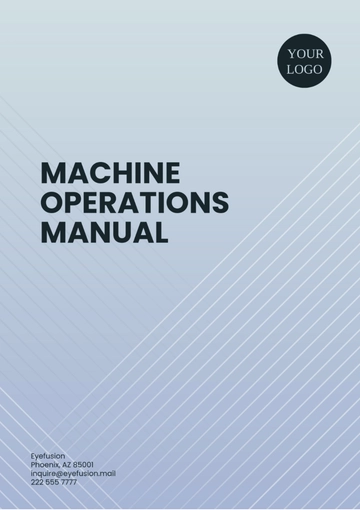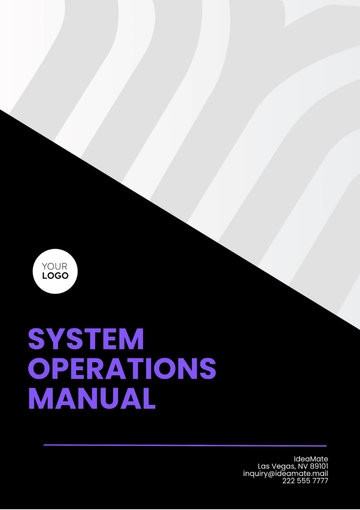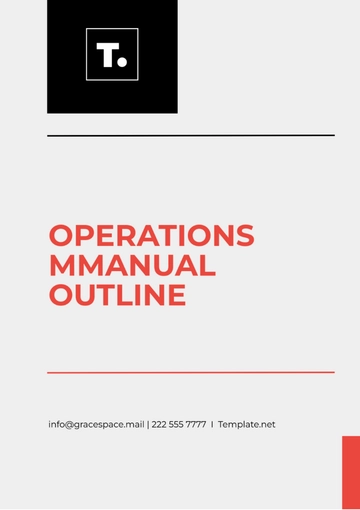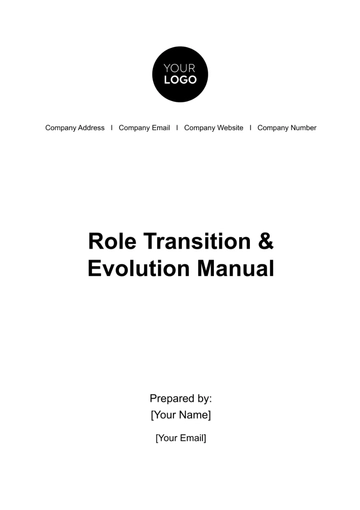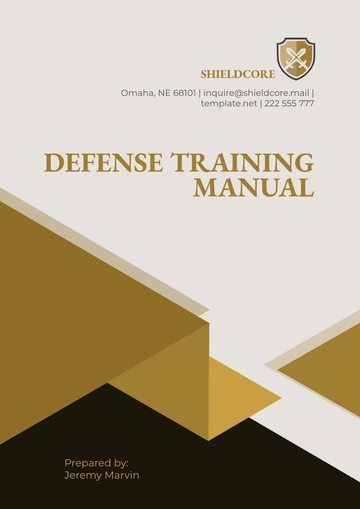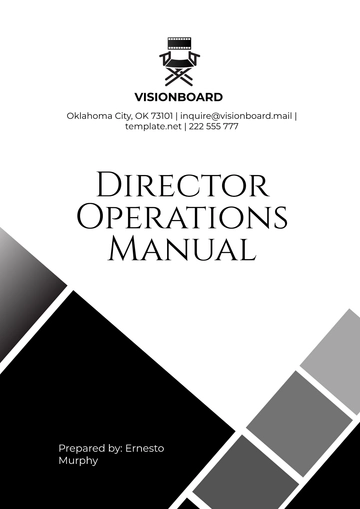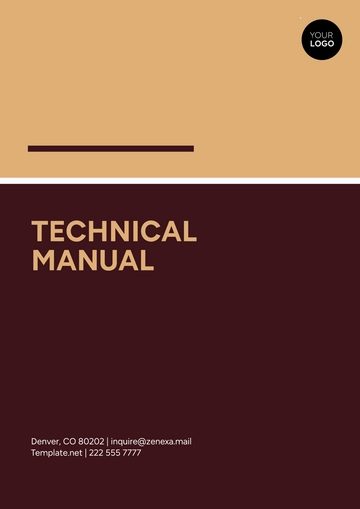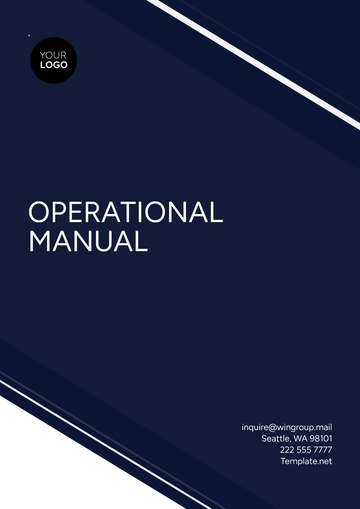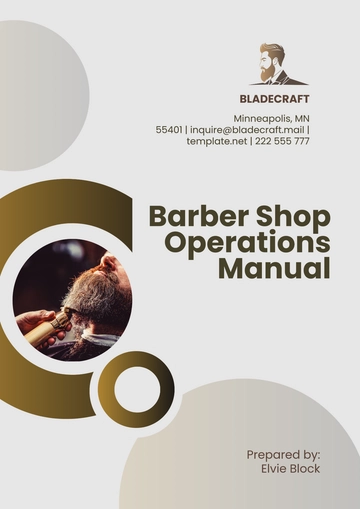Free Legal Corporate Legal Department Operations Manual
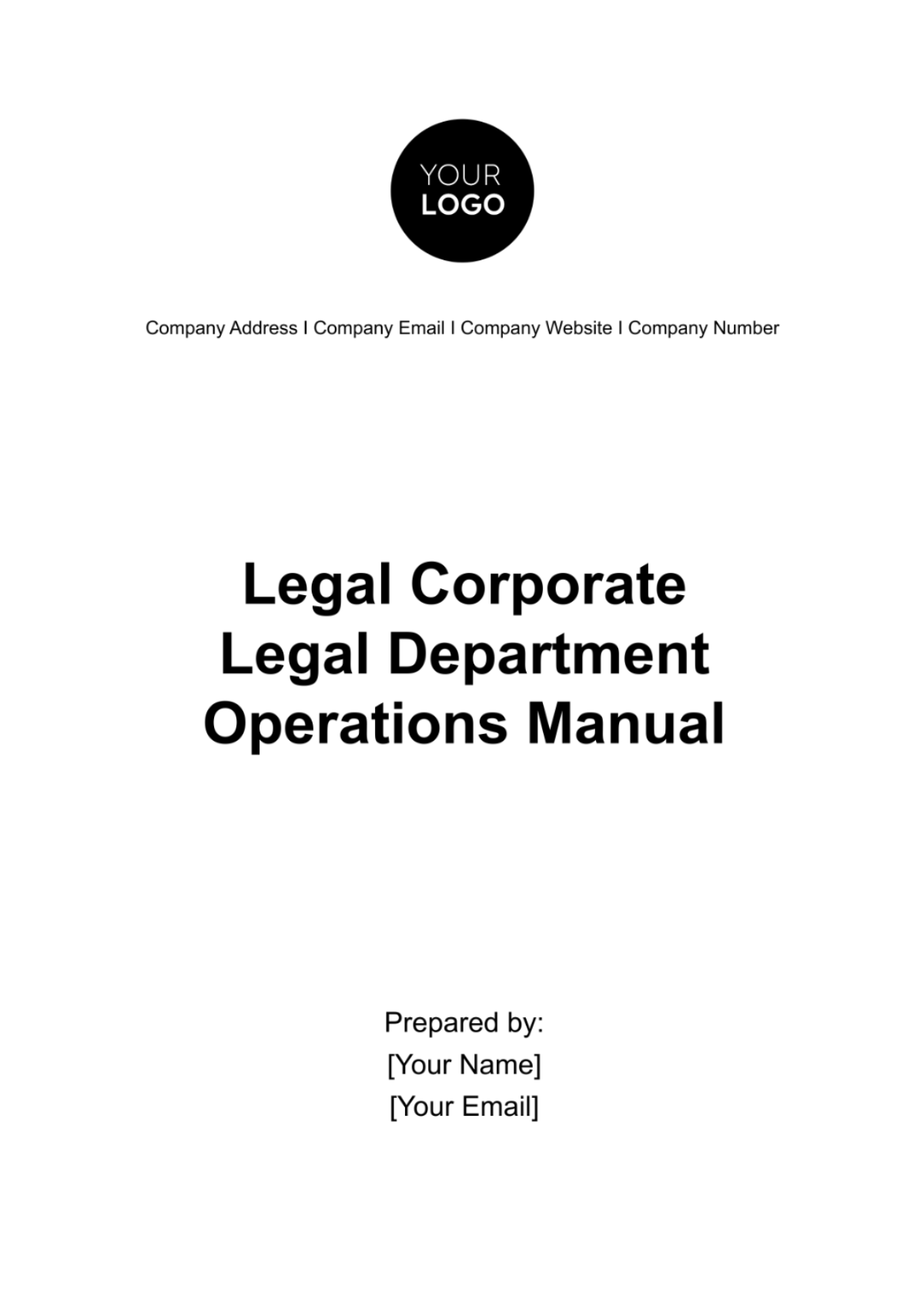
I. Introduction
A. Purpose of the Manual
This Manual serves as a comprehensive guide for our Legal Department's operations, outlining the policies, procedures, and best practices that govern our day-to-day activities. It is designed to ensure consistency, efficiency, and compliance across all legal operations, providing a clear framework for decision-making and workflow management. This document is intended for use by all members of the Legal Department as a reference to navigate the complexities of our legal obligations and responsibilities.
B. Scope of Legal Operations
The scope of our Legal Operations encompasses all activities undertaken by the Legal Department to protect and support the organization. This includes contract management, compliance oversight, litigation management, intellectual property protection, corporate governance, and employment law matters. The Manual covers the processes and procedures for managing these activities effectively, ensuring that our legal practices align with the organization's strategic objectives and comply with applicable laws and regulations.
II. Department Structure and Governance
A. Organizational Structure
Our Legal Department is structured to provide comprehensive legal support to the organization while ensuring specialization in key areas of law and business. The following table outlines our organizational hierarchy, including the roles and responsibilities of each position:
Position | Responsibilities |
General Counsel | Oversees the entire Legal Department, setting strategic direction and ensuring alignment with organizational goals. |
Deputy General Counsel | Assists the General Counsel and leads specific legal initiatives and projects. |
Compliance Officer | Manages the organization's compliance programs, ensuring adherence to laws, regulations, and internal policies. |
Litigation Manager | Oversees all litigation matters, coordinating with external counsel and managing internal responses. |
Contracts Manager | Handles the drafting, review, and negotiation of contracts, ensuring they meet organizational standards. |
Intellectual Property Counsel | Manages the protection and licensing of the organization's intellectual property. |
Employment Law Counsel | Advises on employment law matters, including employee relations and compliance with labor laws. |
B. Governance Policies
Our governance policies establish the framework for legal operations, ensuring that our activities are conducted with integrity, transparency, and accountability. The following policies guide our legal operations:
Ensure Ethical Conduct: All legal department activities must adhere to the highest ethical standards, maintaining confidentiality and avoiding conflicts of interest.
Follow Decision-Making Protocols: Decisions within the Legal Department follow established protocols to ensure consistency and compliance with legal and regulatory requirements.
Maintain Transparent Reporting Lines: Clear reporting lines are established to facilitate effective communication and oversight within the Legal Department and with external stakeholders.
Implement Rigorous Compliance Programs: We maintain rigorous compliance programs to monitor and ensure adherence to all applicable laws, regulations, and internal policies.
Promote Continuous Learning: The Legal Department commits to continuous learning and development to stay abreast of legal and regulatory changes affecting the organization.
III. Legal Department Functions
A. Contract Management
Effective contract management is vital to safeguarding our interests and minimizing legal risks. This function encompasses drafting, reviewing, and negotiating contracts to ensure they align with our strategic goals and comply with applicable laws.
Draft Contracts: Utilize standardized templates for common contracts and customize clauses as necessary to address specific transactions or relationships.
Review Contracts: Conduct thorough reviews of all contracts drafted by other parties, ensuring they meet our requirements and do not expose us to undue risk.
Negotiate Terms: Engage in negotiations to amend contract terms that are unfavorable or pose potential legal risks, aiming for terms that are mutually beneficial and aligned with our strategic interests.
Finalize and Execute: After satisfactory review and negotiation, finalize contracts for execution by authorized signatories, ensuring that all parties have a clear understanding of their obligations.
B. Compliance Management
Compliance management ensures that our operations adhere to applicable laws, regulations, and internal policies, thereby mitigating legal risks.
Identify Relevant Regulations: Regularly identify and assess the impact of relevant local, national, and international regulations on our operations.
Develop Compliance Policies: Create and update comprehensive compliance policies that reflect regulatory requirements and best practices.
Conduct Training Sessions: Organize regular training sessions for employees to ensure they understand compliance obligations and the importance of adherence.
Monitor and Audit: Implement ongoing monitoring and periodic audits to ensure compliance and identify areas for improvement.
C. Litigation Management
Litigation management involves handling disputes, litigation, and arbitration in a way that protects our interests while minimizing exposure to legal risks.
Disputes: Attempt to resolve disputes through negotiation or mediation before they escalate into litigation, focusing on solutions that avoid costly legal battles. When disputes cannot be resolved, assess the legal merits and risks involved, and develop a strategy that aligns with our business objectives.
Litigation: Prepare thoroughly for litigation by gathering relevant documents, identifying key witnesses, and collaborating with external counsel. Actively manage the litigation process, ensuring adherence to deadlines, strategic oversight of the legal arguments, and regular updates to stakeholders.
Arbitration: Evaluate the use of arbitration clauses in contracts as a means to resolve disputes outside the court system, considering the implications for confidentiality and control over the process. Manage the arbitration process by selecting arbitrators, preparing submissions, and representing our interests effectively during hearings.
D. Intellectual Property Management
Managing our intellectual property (IP) is crucial for protecting our innovations and maintaining our competitive advantage.
Identify and Protect IP: Regularly identify inventions, creations, and brand elements that can be protected through patents, copyrights, trademarks, or trade secrets. Take appropriate steps to secure legal protection for these assets.
Monitor Use of IP: Monitor the market for unauthorized use of our IP and enforce our rights through legal action if necessary to prevent infringement.
Leverage IP Assets: Explore opportunities to leverage our IP assets through licensing, partnerships, or other commercial arrangements that contribute to our strategic objectives.
Educate Employees: Conduct training for employees on the importance of IP protection and the procedures for reporting potential IP creations or infringements.
E. Corporate Governance
Corporate governance encompasses the practices and processes that govern our organization’s direction and accountability. Our Legal Department plays a crucial role in ensuring that corporate governance standards are not only met but exceeded, thereby maintaining trust with shareholders, regulatory bodies, and the public.
Organize Board Meetings: Schedule and organize board meetings, ensuring compliance with legal requirements and best practices. Prepare agendas, facilitate the distribution of materials in advance, and record minutes to document discussions and decisions accurately.
Manage Corporate Filings: Oversee the timely preparation and submission of required corporate filings to regulatory agencies. Ensure that filings accurately reflect the organization’s financial status and operations, and comply with legal standards.
Advise on Governance Policies: Provide guidance to the board and senior management on corporate governance policies, including conflicts of interest, board composition, and shareholder communications. Ensure policies are up-to-date and reflect current best practices and legal requirements.
Monitor Regulatory Developments: Stay informed about changes in corporate governance regulations and best practices. Assess the potential impact on our operations and recommend adjustments to governance policies and practices as needed.
F. Employment Law
Navigating employment law is essential for managing our workforce effectively while protecting the organization from legal risks related to employment practices.
Handling Employee Agreements: Drafting, reviewing, and negotiating employment agreements is critical to clarify the expectations, rights, and obligations of both the organization and the employee. Ensure that agreements comply with labor laws and include provisions on confidentiality, non-compete, and termination procedures. Regularly update these agreements to reflect changes in law or organizational policies.
Employee Disputes: Develop and implement procedures for resolving employee disputes in a fair and legal manner. This includes establishing a formal grievance process that allows employees to voice concerns without fear of retaliation. Train managers on how to handle disputes effectively and escalate them to the Legal Department when necessary. When disputes cannot be resolved internally, prepare for and represent the organization in mediation, arbitration, or litigation, as appropriate.
IV. Legal Operations Management
A. Legal Project Management
Effective legal project management is crucial for ensuring that legal projects are completed on time, within budget, and to the required standards. This approach helps in prioritizing tasks, allocating resources efficiently, and enhancing the overall productivity of the legal department.
Define Project Scope and Objectives: Clearly outline the goals, deliverables, and deadlines for each legal project.
Assign Project Teams: Designate project teams with clear roles and responsibilities to ensure accountability.
Implement Project Management Tools: Utilize project management software to track progress, manage documents, and facilitate communication among team members.
Monitor and Adjust: Regularly review project progress and make necessary adjustments to keep the project on track.
Post-Project Review: Conduct a review upon project completion to identify lessons learned and opportunities for improvement.
B. Budget Management
Managing the legal department's budget effectively is essential for controlling costs while still providing high-quality legal services. A well-planned budget ensures that financial resources are allocated efficiently, supporting the department's strategic goals.
Budget Item | Suggested Allocation |
Personnel Costs | 50% |
External Legal Fees | 20% |
Technology and Tools | 10% |
Training and Development | 10% |
Miscellaneous | 10% |
Implementing cost control measures is crucial for staying within the allocated budget. This involves regularly reviewing and adjusting expenditures, negotiating favorable terms with external vendors, and leveraging technology to improve efficiency. Cost-saving initiatives, such as in-house training programs and using alternative dispute resolution methods, can also help reduce expenses without compromising the quality of legal services.
C. Vendor Management
Selecting and managing external legal vendors, including law firms and consultants, is a significant aspect of legal operations management. These vendors can provide specialized expertise and support for various legal matters.
Selection Criteria | Description |
Expertise | Vendor's experience and expertise in specific legal areas. |
Cost-Effectiveness | Reasonable and transparent pricing structures. |
Reputation | Vendor's standing in the legal community and client feedback. |
Compatibility | Alignment with our organizational culture and values. |
Responsiveness | Vendor's ability to respond promptly and meet deadlines. |
To manage external legal vendors effectively:
Conduct Due Diligence: Research potential vendors thoroughly before engagement.
Negotiate Clear Terms: Ensure contracts with vendors include clear terms regarding scope of work, confidentiality, and billing practices.
Establish Communication Protocols: Set up regular meetings and updates to ensure projects are progressing as planned.
Evaluate Performance: Regularly assess vendor performance against agreed benchmarks and provide feedback.
Foster Long-Term Relationships: Build strong relationships with key vendors to improve service levels and possibly secure more favorable terms.
V. Legal Risk Management
A. Risk Identification and Assessment
Effective legal risk management begins with the systematic identification and assessment of potential legal risks that could impact our organization. This process ensures we are proactive in addressing issues before they escalate into significant legal challenges.
Criteria for Assessment | Assessment Scale |
Potential Financial Impact | High / Medium / Low |
Likelihood of Occurrence | Likely / Possible / Unlikely |
Impact on Reputation | High / Medium / Low |
Regulatory or Compliance Impact | High / Medium / Low |
Operational Impact | High / Medium / Low |
B. Risk Mitigation Strategies
Once risks are identified and assessed, implementing appropriate mitigation strategies is crucial to minimize their potential impact.
Develop and Update Policies: Regularly review and update internal policies to ensure they reflect current laws and best practices.
Conduct Regular Training: Provide ongoing training for employees on legal compliance, ethical conduct, and risk awareness.
Implement Contractual Safeguards: Use well-drafted contracts to allocate risks appropriately with third parties.
Establish Compliance Programs: Create comprehensive compliance programs that include monitoring and auditing mechanisms.
Engage in Pre-emptive Legal Actions: Where necessary, take pre-emptive legal actions to protect the organization's interests, such as seeking injunctions or filing for intellectual property protections.
VI. Professional Development and Training
Investing in the professional development and training of our legal department staff is vital to maintaining a high-performing team capable of addressing complex legal issues. Continuous learning opportunities ensure our team stays updated on the latest legal trends and best practices.
Program | Target Audience | Objective | Frequency |
Legal Updates Seminar | All Legal Staff | To update the team on recent legal developments and their impact on our operations. | Quarterly |
Compliance Training | All Employees | To ensure employees understand compliance requirements relevant to their roles. | Annually |
Skills Enhancement Workshop | Legal Staff | To develop specialized skills such as negotiation or legal analysis. | Bi-annually |
Leadership Development Program | Senior Legal Staff | To prepare senior staff for leadership roles within the department. | Annually |
VII. Communication and Collaboration
A. Internal Communication
Effective internal communication is essential for the smooth operation of the legal department and its integration with other parts of the organization.
Foster Open Dialogue: Encourage open and transparent communication within the legal department and across other departments.
Utilize Technology: Leverage technology platforms like intranets and collaboration tools to share information and updates.
Hold Regular Meetings: Conduct regular team meetings and cross-departmental briefings to discuss ongoing matters and strategic initiatives.
Create Communication Channels: Establish dedicated channels for specific types of communication, such as legal updates or compliance alerts.
B. External Communication
Managing external communications carefully is crucial to maintaining the organization's legal and reputational integrity.
Define Communication Protocols: Establish clear protocols for communicating with external parties, including who is authorized to speak on behalf of the organization.
Maintain Professionalism: Ensure all communications are professional, accurate, and reflect the organization's values.
Protect Confidentiality: Be vigilant in protecting confidential and sensitive information in all external communications.
Use Legal Disclaimers: Employ appropriate legal disclaimers in external communications, where necessary, to limit potential legal liability.
IX. Legal Department Policies and Procedures
A. Ethical Standards and Compliance
Our Legal Department upholds the highest ethical standards and is committed to full compliance with all applicable laws, regulations, and organizational policies. Personnel are expected to conduct themselves with integrity, honesty, and fairness in all professional dealings. This includes adhering to principles of legal ethics such as confidentiality, conflict of interest avoidance, and the diligent representation of our organization's interests. We hold ourselves accountable to these standards through regular ethics training, monitoring, and enforcement mechanisms to ensure compliance and to foster a culture of ethical awareness and responsibility within the department.
B. Conflict of Interest Policies
The Legal Department has a strict policy for identifying and managing conflicts of interest to ensure that all legal advice and actions taken are in the best interest of the organization, free from any undue influence. Personnel are required to disclose any personal or financial interests that may conflict, or appear to conflict, with the interests of the organization. This includes relationships with external entities or involvement in transactions that could compromise their ability to act impartially. Upon identification of a potential conflict, measures are taken to manage or eliminate the conflict, including recusal from related matters or reassignment, ensuring that all legal matters are handled with the utmost integrity.
C. Confidentiality Agreements
Maintaining confidentiality in legal matters is paramount to the trust and integrity of our Legal Department. Personnel are bound by confidentiality agreements that obligate them to protect sensitive information and client secrets obtained in the course of their duties. This includes all forms of communication and documents related to our organization's operations, legal strategies, and client information. Breaches of confidentiality are treated with the highest severity and may result in disciplinary action, up to and including termination of employment, to safeguard our organization's information and maintain the trust of our stakeholders.
X. Review and Update of the Manual
This Manual is a living document and will be subject to review and updates at least annually, or more frequently as necessary, to ensure that it remains current with legal best practices, regulatory changes, and the evolving needs of our organization. The review process will be led by the General Counsel, in collaboration with department leaders, to assess the effectiveness of existing policies and procedures and to identify areas for improvement. Feedback from legal department personnel will be actively sought to inform updates. Changes to the manual will be communicated promptly to all relevant parties, and training sessions will be conducted as needed to ensure understanding and compliance with any new or revised policies and procedures. This ongoing review and update process reflects our commitment to continuous improvement and excellence in legal department operations.
- 100% Customizable, free editor
- Access 1 Million+ Templates, photo’s & graphics
- Download or share as a template
- Click and replace photos, graphics, text, backgrounds
- Resize, crop, AI write & more
- Access advanced editor
The Legal Corporate Legal Department Operations Manual Template from Template.net is a crucial resource for optimizing the functionality and efficiency of corporate legal departments. This template is highly editable and customizable, allowing for detailed customization to fit departmental needs. Editable in our AI Editor tool, it provides a structured approach to managing legal operations, ensuring best practices, and streamlining workflows.
